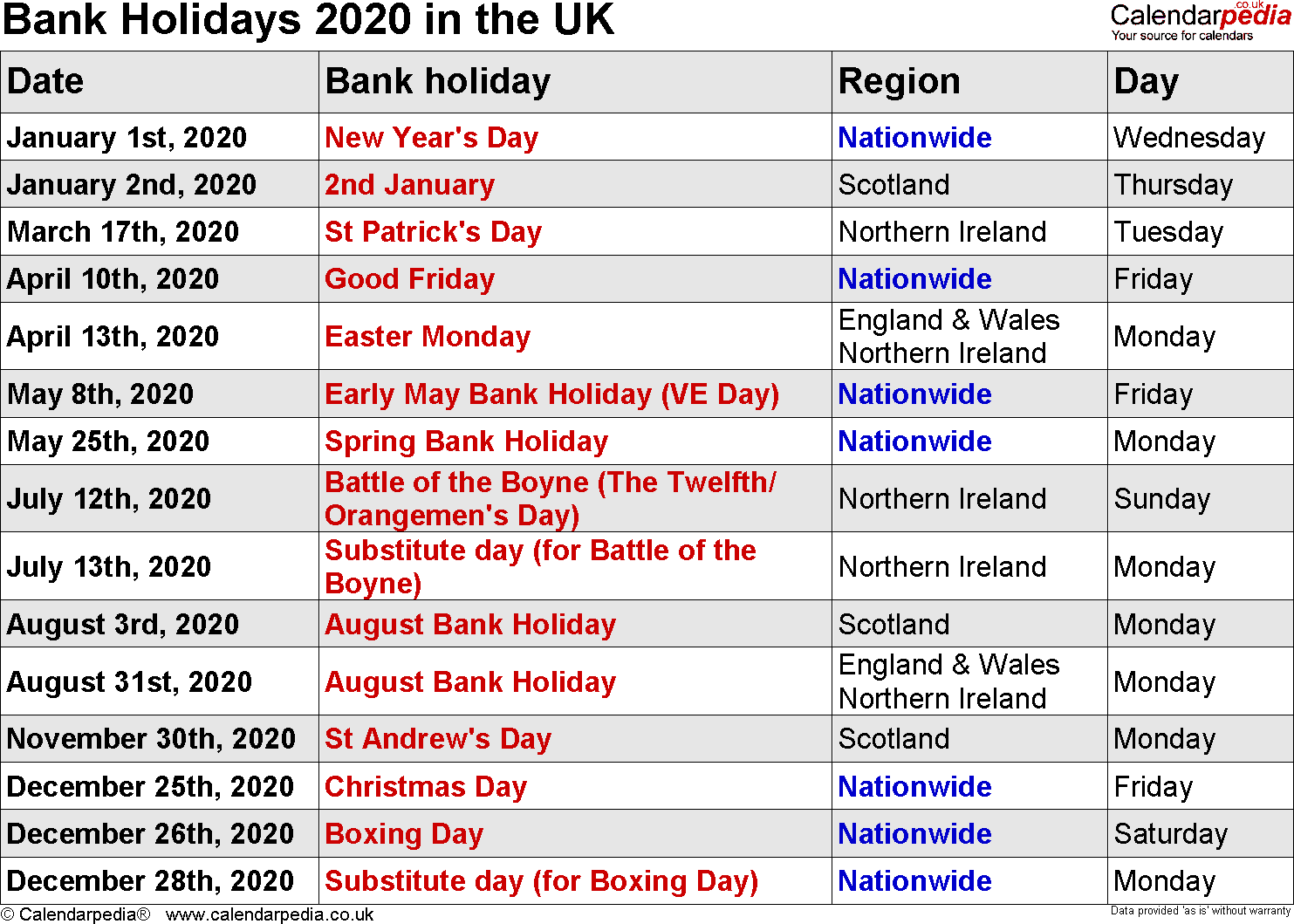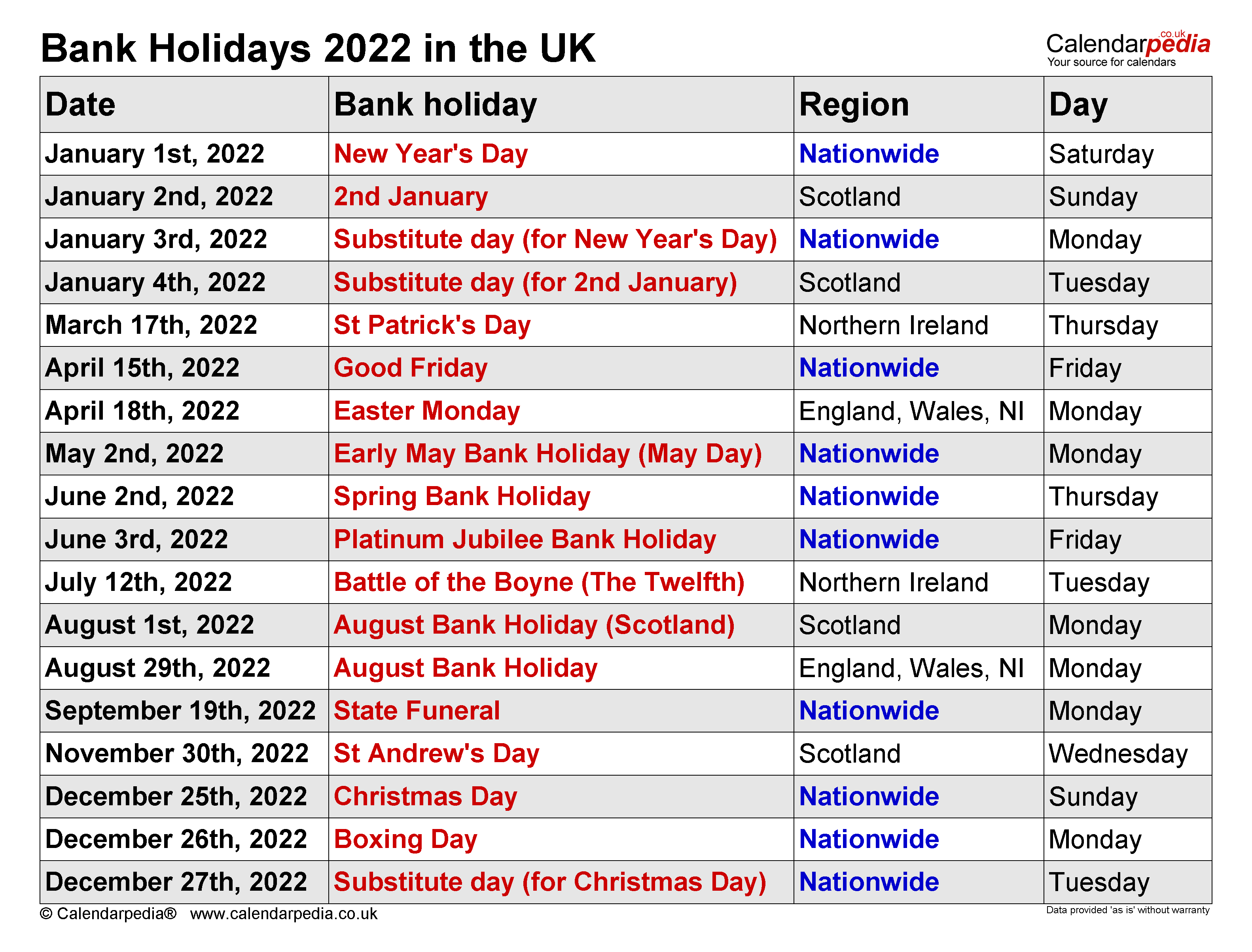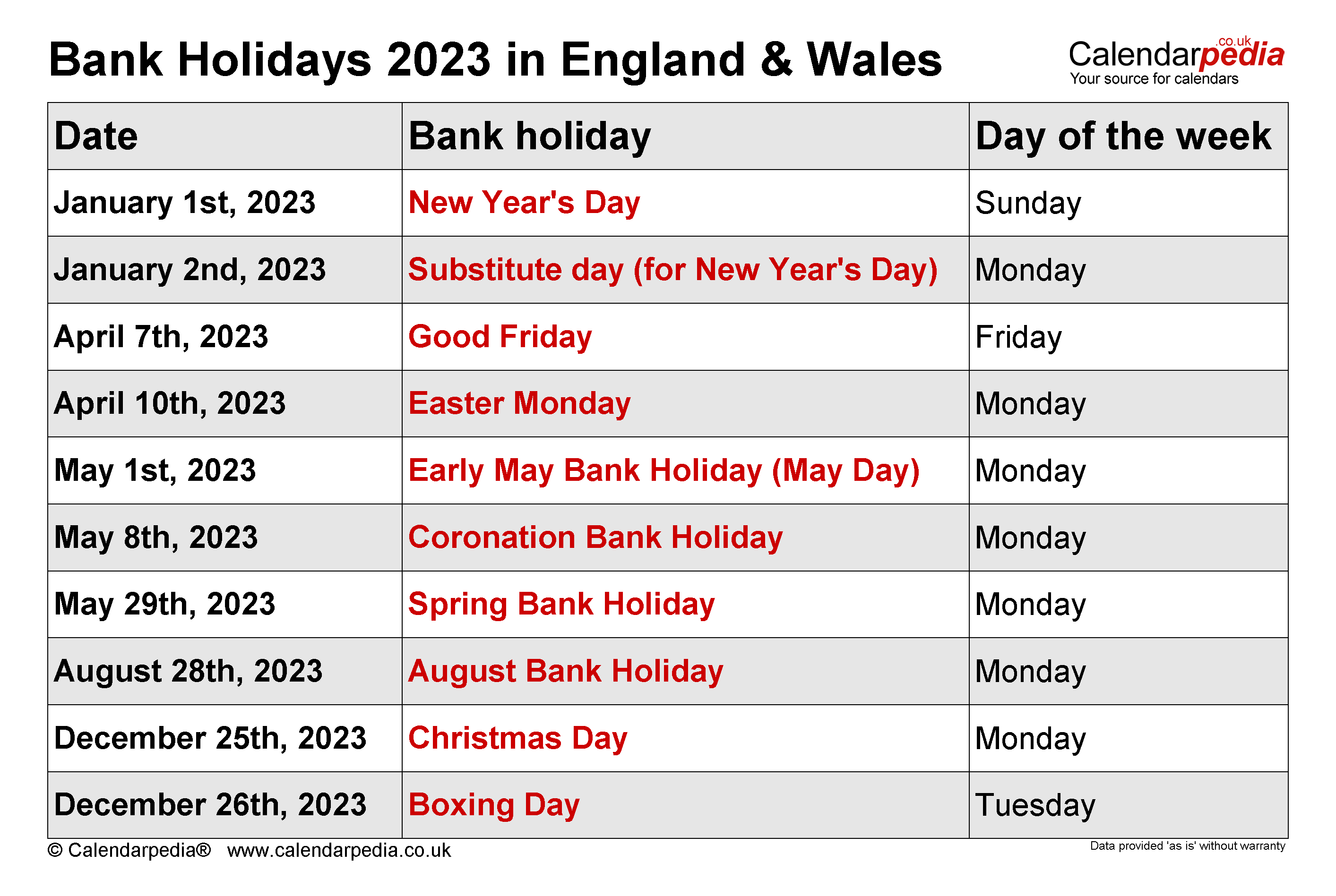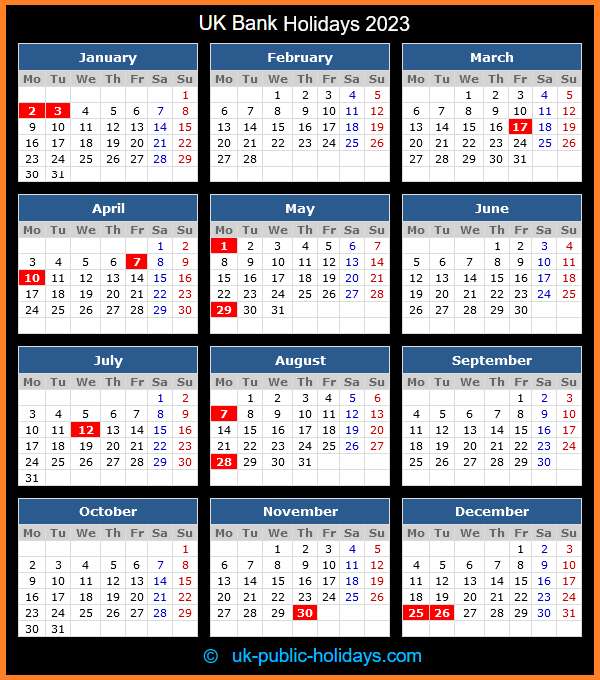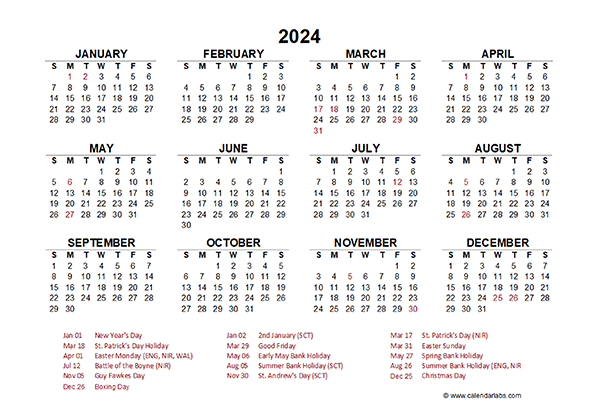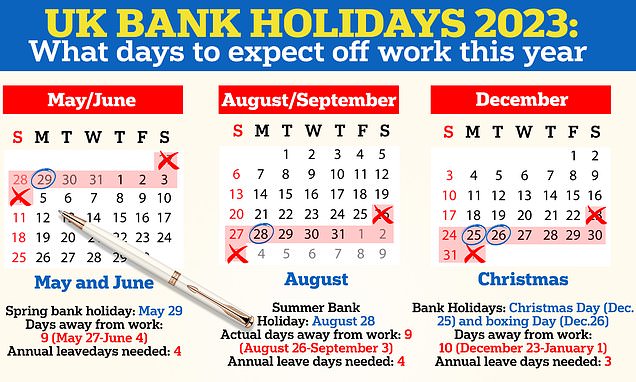
The festive season is upon us, and with it comes a series of Christmas bank holidays in the United Kingdom. These special days are a great opportunity to relax, spend time with loved ones, and recharge for the year ahead. In this article, we will delve into the details of the UK's Christmas bank holidays, including the dates, history, and cultural significance.
Bank holidays have a long history in the UK, dating back to 1871 when Sir John Lubbock introduced the Bank Holidays Act. The law designated specific days as bank holidays, including Christmas Day, Boxing Day, and Easter Monday. These holidays were designed to provide workers with a much-needed break and allow them to participate in traditional celebrations.
Christmas Bank Holidays Dates
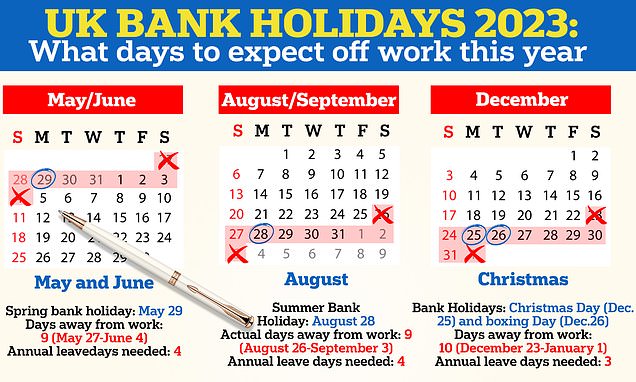
The Christmas bank holidays in the UK typically take place in late December and early January. The exact dates may vary from year to year, but the core holidays remain the same:
- Christmas Day: December 25th
- Boxing Day: December 26th
- New Year's Day: January 1st
Additionally, some years may include extra bank holidays, such as:
- Christmas Eve: December 24th (not always a bank holiday, but some businesses may close early)
- New Year's Eve: December 31st (not always a bank holiday, but some businesses may close early)
Scotland and Northern Ireland
Scotland and Northern Ireland have slightly different bank holiday dates:
- Scotland: January 2nd is an additional bank holiday in Scotland, known as the "January 2nd bank holiday."
- Northern Ireland: December 26th is known as "St. Stephen's Day" in Northern Ireland, and is a bank holiday.
History and Cultural Significance

Christmas bank holidays have a rich history in the UK, dating back to the 19th century. The introduction of the Bank Holidays Act in 1871 marked a significant shift in the way people celebrated Christmas. Prior to this, Christmas was a working day for many, and the holiday was not widely observed.
The cultural significance of Christmas bank holidays cannot be overstated. These special days bring people together, provide a much-needed break from work, and allow for traditional celebrations to take place. Many families use this time to reconnect, exchange gifts, and enjoy festive meals together.
Traditional Celebrations
Christmas bank holidays are a time for traditional celebrations in the UK. Some popular activities include:
- Attending church services
- Exchanging gifts with family and friends
- Enjoying festive meals, such as turkey and mince pies
- Watching traditional Christmas TV shows and films
- Participating in outdoor activities, such as ice skating or sledding
Impact on Businesses and Services

Christmas bank holidays can have a significant impact on businesses and services in the UK. Many shops, restaurants, and attractions may close or operate reduced hours during this time. Some businesses may also experience a surge in demand for certain products or services.
To minimize disruptions, it's essential for businesses and individuals to plan ahead. This may include:
- Checking bank holiday dates in advance
- Making travel arrangements and booking accommodations early
- Stocking up on essential items and supplies
- Planning for alternative arrangements, such as online shopping or delivery services
Tips for Making the Most of Christmas Bank Holidays
- Plan ahead: Make travel arrangements, book accommodations, and stock up on essential items.
- Be flexible: Be prepared for changes in business hours or service availability.
- Take advantage of online services: Use online shopping and delivery services to avoid disruptions.
- Enjoy the festivities: Make the most of this special time with family and friends.
Conclusion
Christmas bank holidays are a cherished tradition in the UK, providing a much-needed break and a chance to celebrate with loved ones. By understanding the history, cultural significance, and impact of these holidays, we can make the most of this special time.
Whether you're planning a relaxing staycation or a festive getaway, make sure to check the bank holiday dates and plan ahead. With a little preparation, you can enjoy a wonderful Christmas and start the new year on a high note.
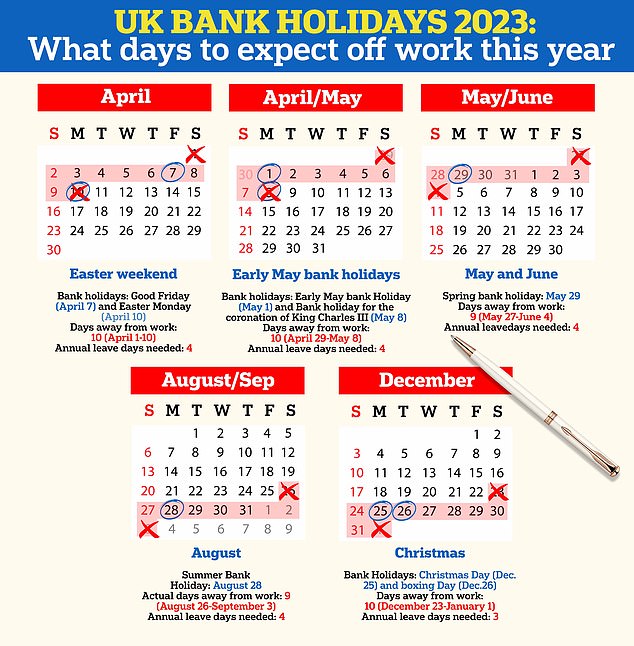
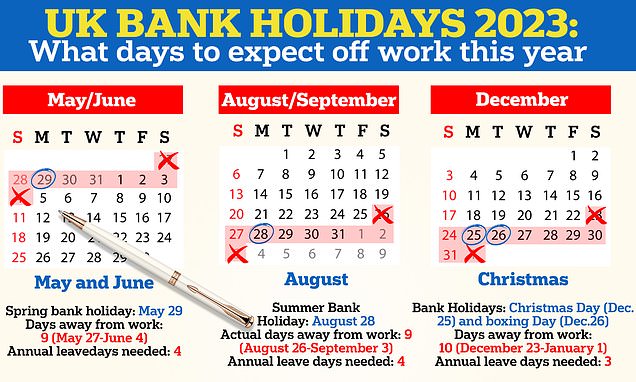

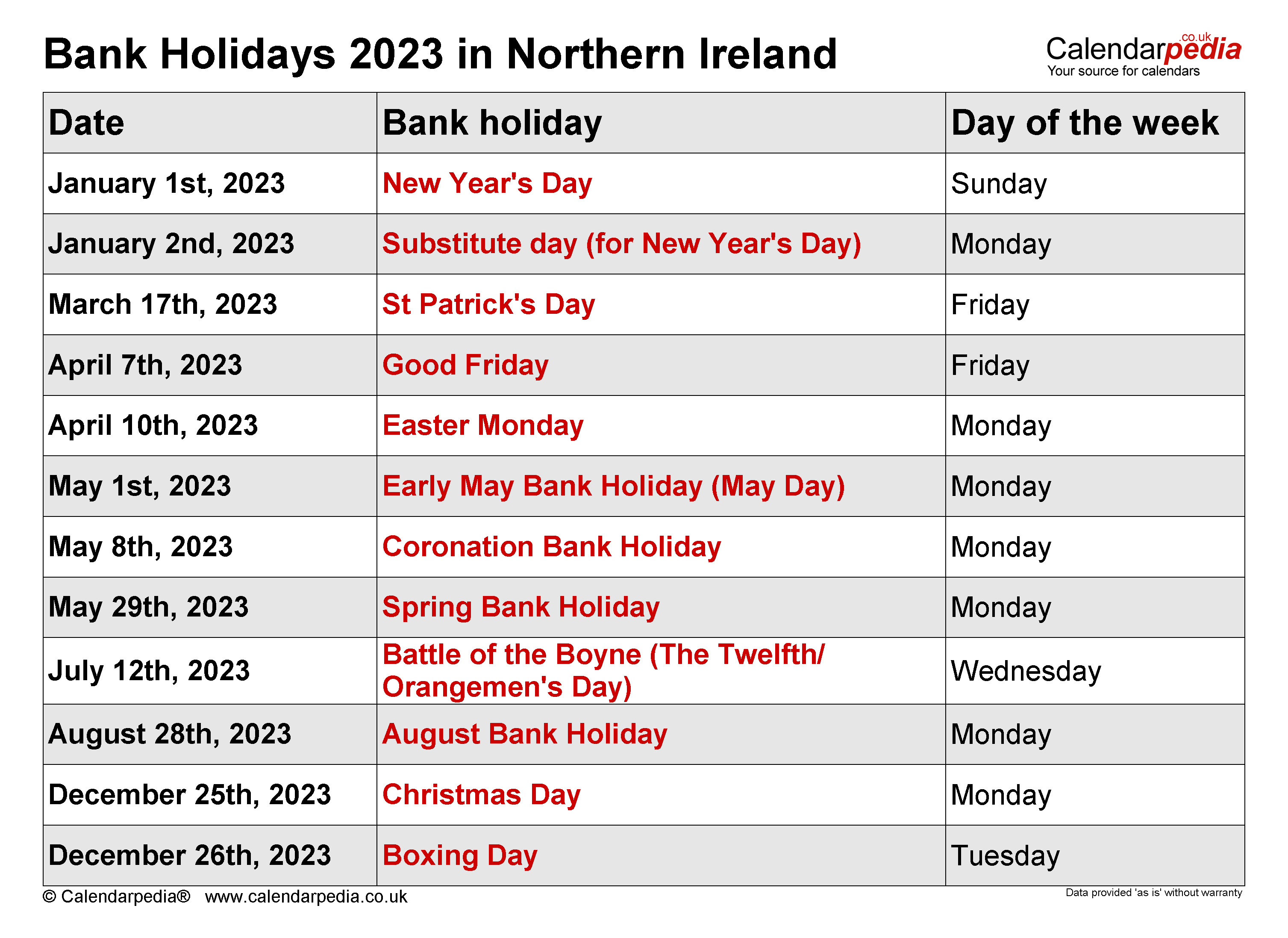
What are the Christmas bank holiday dates in the UK?
+The Christmas bank holidays in the UK typically take place on December 25th (Christmas Day), December 26th (Boxing Day), and January 1st (New Year's Day).
Are Christmas bank holidays the same in Scotland and Northern Ireland?
+No, Scotland and Northern Ireland have slightly different bank holiday dates. In Scotland, January 2nd is an additional bank holiday, while in Northern Ireland, December 26th is known as St. Stephen's Day and is a bank holiday.
How do Christmas bank holidays affect businesses and services?
+Christmas bank holidays can have a significant impact on businesses and services, with many shops, restaurants, and attractions closing or operating reduced hours. It's essential to plan ahead and make alternative arrangements.

